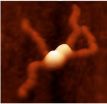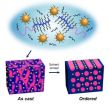(Press-News.org) Neuroscientists agree that abuse of drugs hijacks circuits in the brain that are crucial for decision-making, but society as a whole tends to stigmatize addicted people for lacking self-control. Slowly but steadily, scientists say, they are making important progress in changing the perception of addiction as they identify new therapeutic interventions that could render addiction into the equivalent of a manageable disease like diabetes.
A group of addiction researchers, for one, recently recommended to the Commission on Narcotic Drugs, part of the United Nations Office on Drugs and Crime, that the problem of substance use disorders—a term that refers to what most people think of as addiction—should be approached as a medical, not a legal, issue. In this vein, New York City's police department has begun to equip its officers with naloxone, a medication that can be used to save lives in the event of a heroin overdose. What have scientists discovered about addiction that led them to consider it as a disease rather than due to users' lack of willpower?
In a "roundtable" discussion convened by the Kavli Foundation, Marina Picciotto, Charles B.G. Murphy Professor of Psychiatry at Yale University in New Haven, CT, and a member of Yale's Kavli Institute for Neuroscience, put it this way: "Drugs of abuse change the brain in a significant way such that decision making is permanently, or at least on a fairly long-term basis, impaired. And therefore free will as we know it is not gone, but it is so severely modulated that someone who is not addicted has a hard time understanding that loss of volitional control."
The stigma directed toward drug addicts is similar to the stigma that surrounds those who are obese. Research on both substance use disorders and obesity shows that the biology behind the two diseases overlaps, resulting in a change in the sensitivity of the reward systems in the brain to food and drugs of abuse. "That overlap makes a lot of sense, because these circuits did not evolve for us to take drugs," said Nora D. Volkow, Director of the National Institute on Drug Abuse (NIDA) at the National Institutes of Health in Bethesda, MD. "These circuits evolved to ensure that we eat properly. What we are seeing in addiction are drugs literally hijacking systems that took millions of years of evolution. And that's why there is no surprise that we see so many similarities in the behavioral expression of compulsive overeating and loss of control and that associated with compulsive drug taking in addicted individuals."
Currently, there are a handful of pharmacological treatments for people addicted to heroin, alcohol and nicotine. Needed are new therapies to treat not only these addictions, but also addictions to substances of abuse such as cocaine and methamphetamine. It is a lament among many addiction scientists that the pipeline for new pharmacological treatments remains all but dry. "We have a paradoxical situation in which we have identified a large number of potentially very interesting molecular targets for medication development and yet pharma is not investing," says Volkow. "So, despite the great potential to reduce the burden of disease nationally and globally, the relative investments for medication development are really embarrassingly low."
Even so, there remains reason for optimism, according to Eric J. Nestler, Director of the Friedman Brain Institute at the Icahn School of Medicine at Mount Sinai in New York City. "If you turn the clock back 50 or 60 years to a time before antidepressants were introduced, no one in the field would have expected such robust chemical treatments of depression," Nestler said during the roundtable discussion. "So even though some people are skeptical today about medicines for treating addiction, we should be very optimistic that we will see the day when effective treatments will be available."
INFORMATION:
For the complete story: http://www.kavlifoundation.org/science-spotlights/addiction-can-the-brain-control-uncontrollable-urges#.U5XHV3JdW9Y
Researchers recast addiction as a manageable disease
2014-06-09
ELSE PRESS RELEASES FROM THIS DATE:
Protein could put antibiotic-resistant bugs in handcuffs
2014-06-09
DURHAM, N.C. -- Staph infections that become resistant to multiple antibiotics don't happen because the bacteria themselves adapt to the drugs, but because of a kind of genetic parasite they carry called a plasmid that helps its host survive the antibiotics.
Plasmids are rings of bare DNA containing a handful of genes that are essentially freeloaders, borrowing most of what they need to live from their bacterial host. The plasmids copy themselves and go along for the ride when the bacteria divide to copy themselves.
A team from Duke and the University of Sydney in ...
Parent and child must get enough sleep to protect against child obesity
2014-06-09
URBANA, Ill. – Is sleep one of your most important family values? A new University of Illinois study suggests that it should be, reporting that more parental sleep is related to more child sleep, which is related to decreased child obesity.
"Parents should make being well rested a family value and a priority. Sleep routines in a family affect all the members of the household, not just children; we know that parents won't get a good night's sleep unless and until their preschool children are sleeping," said Barbara H. Fiese, director of the U of I's Family Resiliency Center ...
Land quality and deforestation in Mato Grosso, Brazil
2014-06-09
PROVIDENCE, R.I. [Brown University] — The state of Mato Grosso is the epicenter of an agricultural revolution in Brazil. During the last 15 years, expansion of agriculture in the state has helped Brazil become one of the world's top producers of soy, corn, cotton, and other staple crops. Despite the increase in production, the rate at which Amazon forestland in the state was cleared to make room for new farmland slowed significantly in the second half of the last decade.
Much of the credit for slowing deforestation has been given to government policies and intervention, ...
Does 'free will' stem from brain noise?
2014-06-09
VIDEO:
UC Davis researchers found that the pattern of electrical activity in the brain immediately before making a decision can predict the choice made. This video shows how these experiments are...
Click here for more information.
Our ability to make choices — and sometimes mistakes — might arise from random fluctuations in the brain's background electrical noise, according to a recent study from the Center for Mind and Brain at the University of California, Davis.
"How ...
Humanitarian liking on Facebook
2014-06-09
"Liking" a page on the social networking site Facebook is a new form of civic engagement and humanitarian support, so concludes research published in the International Journal of Web Based Communities. According to the paper's authors social motives and an emotional response underpinned users' inclination to like, or follow, a page, rather than their simply seeking information and news.
Petter Bae Brandtzaeg and Ida Maria Haugstveit of Scandinavian research organization SINTEF in Oslo, Norway, surveyed more than 400 Facebook users about their habits on the site and their ...
Berkeley Lab researchers create nanoparticle thin films that self-assemble in 1 minute
2014-06-09
The days of self-assembling nanoparticles taking hours to form a film over a microscopic-sized wafer are over. Researchers with the U.S. Department of Energy (DOE)'s Lawrence Berkeley National Laboratory (Berkeley Lab) have devised a technique whereby self-assembling nanoparticle arrays can form a highly ordered thin film over macroscopic distances in one minute.
Ting Xu, a polymer scientist with Berkeley Lab's Materials Sciences Division, led a study in which supramolecules based on block copolymers were combined with gold nanoparticles to create nanocomposites that ...
'Hello, world!' NASA beams video from space station via laser
2014-06-09
"Hello, World!" came the message from the International Space Station as NASA successfully beamed high-definition video via laser from space to ground on Thursday, June 5. The 175-megabit video transmission was the first of its kind for the Optical Payload for Lasercomm Science (OPALS) with the goal of improving the way we receive data from orbit and beyond. In fact, this emerging technology of optical communications--or lasercomm--is likened to an upgrade from dial-up to DSL.
"It's incredible to see this magnificent beam of light arriving from our tiny payload on the ...
African-American women more likely to be diagnosed with higher risk breast cancer
2014-06-09
Washington, D.C., June 9, 2014 - A research study led by cancer specialists at MedStar Washington Hospital Center found that African-American women frequently present with biologically less favorable subtypes of breast cancer.
Researchers at the Hospital Center's Washington Cancer Institute analyzed the biology of breast cancer in 100 African-American women, using a method of genomic profiling. These genomic tests look at the expression of genes associated with the risk of recurrence in the population and further characterizes the biology of the tumor. The 70-gene MammaPrint ...
Affordable housing linked to children's test scores
2014-06-09
It's long been accepted – with little science to back it up – that people should spend roughly a third of their income on housing. As it turns out, that may be about how much a low-income family should spend to optimize children's brainpower.
Johns Hopkins University researchers have explored the effects of affordable housing on the cognitive development, physical health, and emotional wellbeing of children living in poverty. How much a family spends on housing has no impact on a child's physical or social health, they found, but when it came to cognitive ability, it ...
New study finds text messaging program benefits pregnant women
2014-06-09
WASHINGTON, DC (June 9, 2014) – The leading mobile health service in the nation, Text4baby, was found to significantly benefit pregnant women, according to a new study led by Milken Institute School of Public Health (Milken Institute SPH) at the George Washington University and the Madigan Army Medical Center. The pilot study examined several things including the short-term effects of Text4baby exposure four weeks post enrollment on attitudes, beliefs and behaviors targeted by the text messages.
"This study provides the strongest evidence to date that Text4baby reduces ...





